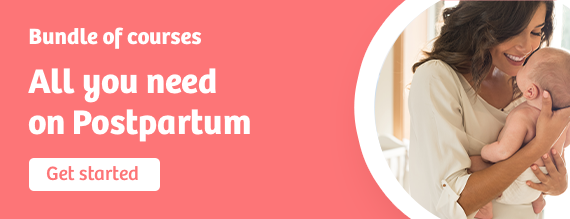What to avoid during Postpartum?
Postpartum is one of the most important times in a new mom’s life, it is a time for recovery from childbirth, and the start of a relationship with the newborn baby. There is often much advice and questions about postpartum, in addition to many misconceptions and wrong practices. Therefore, I will clarify in this article the Dos, and Don’ts during postpartum.


What is the Postpartum period?
It is a time for recovery and much-needed rest for the mother and baby. In some cultures, the postpartum period is considered the tenth month of pregnancy, as it is a continuation of this life-producing journey. During postpartum the baby adjusts to the outside world after being sheltered in the safe and warm womb. It is also a time for bonding and nurturing that the baby needs before stepping out of the house where germs and viruses that can compromise immunity are waiting.
What you shouldn’t do during postpartum
- Be hasty
Don’t rush your emotional and physical recovery. There is currently a lot of pressure on new moms caused by a new stereotypical image imposed by some social media influencers, showing new moms resuming all activities after a few days of giving birth, which leads to the misconception that a new mom doesn’t need to rest and recover.
- Do it all
Do not be a superwoman; do everything without asking for help. In some cultures, the new mom rests for 40 days or six weeks while getting help from her family or her in-laws. The new mom either moves in for this time with them or has her mother-in-law live with her to help her recover physically and mentally.
- Dieting
Avoid rushing into losing weight, by depriving yourself of needed nutrients. This is a common misconception right now, another one caused by social media that often shows new moms with a flat belly a few weeks after giving birth. This can endanger the mother and baby’s health. It is noteworthy that hormonal changes can affect appetite as well, so if you don’t feel you want to eat consult your doctor to get tests and to get a recommendation for a healthy sufficient diet.
- Tossing your vitamins
Don’t stop taking your prenatal vitamins, this can take a toll on your overtired body. Keep taking them after consulting your doctor about the proper dosage.
- Not caring for your wounds
Don’t neglect the birth incision, whether you had a vaginal delivery or a c-section. You need to take care of the incision caused either by episiotomy or surgery, to avoid any infections. Follow the instructions of the medical staff about cleaning the wound, airing it, and keeping it dry, and make sure you choose a proper breastfeeding position if you just had a c-section.
- Ignore your doctor
Neglecting going to the OBGYN after birth. Make sure you go to your medical checkup postpartum as recommended by your doctor. In this visit, your doctor will examine and ensure the health of your incision, check your overall well-being, and discuss birth control options. See your doctor in case of an emergency such as an infection or unusual symptoms.
- Partying
Don’t receive too many visitors immediately after returning from the hospital. Especially if the birth had complications or if you are facing any breastfeeding difficulties. Limit the guests to close relatives who come to help you and support you.
Postpartum Dos
· Taking showers and baths.
· Using medication and ointments prescribed by the doctor to care for birth incisions.
· Consuming healthy foods provides the mom with healthy nutrition and stimulates breast milk production.
· Getting rest as much as possible.
· Getting help from the husband and family.






